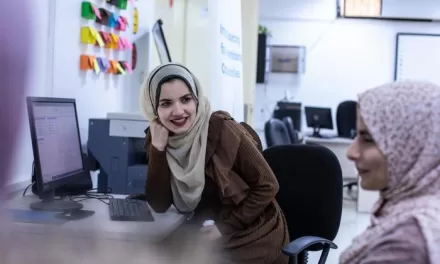In a groundbreaking development, cancer experts heralded the potential of artificial intelligence (AI) to significantly enhance early-phase cancer detection, revolutionizing the landscape of oncological treatment. The transformative impact of AI on cancer diagnostics was highlighted by experts on Thursday, offering renewed hope for more accurate and efficient detection methodologies.
Traditionally, cancer diagnosis relied heavily on invasive procedures like biopsy, histological examinations under microscopes, and imaging tests such as MRI, CT, and PET scans. The subjectivity in interpreting imaging results among professionals and the discomfort associated with specific diagnostic procedures posed challenges in achieving consistent and early diagnoses.
AI systems, particularly those employing deep learning techniques, have emerged as game-changers in the field. Trained on extensive public domain cancer datasets, AI exhibits the capability to analyze medical images with unparalleled accuracy. By detecting minute anomalies often overlooked by the human eye, AI reduces the incidence of false negatives, offering a more reliable diagnostic approach.
Leveraging large sets of patient data, AI can identify individuals at higher risk for specific types of cancer, such as breast and skin cancer, based on factors like family history, obesity, exposure to workplace hazards, or other health indicators. This opens up the possibility of early screenings and targeted interventions.
Dr. Vineet Nakra, a radiation oncologist at Max Super Speciality Hospital, emphasized the role of AI in expediting cancer diagnosis and treatment in India. He noted that AI facilitates faster and more personalized cancer care, streamlines radiation therapy algorithms, aids in remote consultations, and optimizes patient flow for doctors. Given India’s limited infrastructure and high cancer burden, AI enables healthcare professionals to focus more on patient care and less on administrative tasks.
AI’s potential extends beyond early detection; it promises to provide precise and comprehensive information on disease progression and therapeutic benefits at an unprecedented scale. Dr. Ashish Gupta, Chief Oncologist at Unique Hospital Cancer Center in Delhi, emphasized how AI, especially in breast cancer detection, could significantly improve cure rates in India. AI’s continuous improvement when trained on vast datasets makes it more accurate and capable of discerning subtleties across demographics.
One of the most promising applications of AI in oncology is the development of AI-enabled tests that predict both tumor progression and treatment benefits simultaneously. These tests utilize deep-learning algorithms that analyze digital images from patient biopsies, coupled with clinical data, to create personalized treatment plans.
Moreover, AI serves as a bridge for enhanced communication between patients and clinicians, empowering patients to actively participate in decision-making about their care. By providing more information about their illness, AI boosts patient confidence in their treatment plans and contributes to a patient-centric approach to healthcare. As AI continues to evolve, its role in cancer detection and treatment is poised to redefine standards in oncology.











